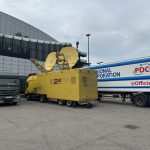Thanks to artificial intelligence (AI) and, in particular, the hype surrounding generative AI (GenAI) and foundational models, server company execs are talking about a turning point in servers, and are reporting growth in the need to run AI and machine learning workloads.
There appears to be strong demand for high performance computing (HPC) hardware that includes graphics processing units (GPUs) for accelerating the performance of workloads and GPU-based servers.
The main reason behind the growing interest in these specialised servers is that many businesses are wary of providing their company-specific data to AI systems such as ChatGPT, which pools data from across the web and public internet.
There is a growing realisation among many businesses that the hyperscalers are behind the curve with regards to supporting the intellectual property of their GenAI users. This is opening up opportunities for specialist GPU cloud providers to offer AI acceleration in a way that allows customers to train foundational AI models based on their own data. Some organisations are also likely to buy and run private cloud servers configured as GPU farms for AI acceleration, fuelling the significant growth in demand for GPU-equipped servers from the major hardware providers.
HPE recently announced an expanded strategic collaboration with Nvidia to offer enterprise computing for GenAI. HPE said the co-engineered, pre-configured AI tuning and inferencing hardware and software platform enables enterprises of any size to quickly customise foundation models using private data and deploy production applications anywhere. The collaboration with Nvidia allows HPE to offer GenAI infrastructure with a full-stack AI tuning and inferencing system.
Discussing the Nvidia collaboration, Antonio Neri, president and CEO of HPE, said: “With the emergence of GenAI, enterprises are quickly realising that the data and computational demands to effectively run AI models require a fundamentally different approach to technology.” He said HPE plans to deliver hybrid cloud, supercomputing and AI capabilities to its enterprise customers to support AI-powered transformation. HPE positions the servers it has developed with HPE as a way to enable its customers to develop AI models securely with their proprietary data.
According to the company’s fourth quarter earnings call, posted on posted on Seeking Alpha, Neri sees AI as one of the growth engines for the company. “We have deliberately aligned our strategy over the past few years to significant trends in the market around edge, hybrid cloud and AI,” he said. “These growth engines align to our customers’ interests and where they are targeting their IT spend. Even against an uncertain macroeconomic backdrop, we saw continued though uneven demand across our HPE portfolio with a significant acceleration in AI orders. Demand in our AI solutions is exploding.”
According to Neri, HPE’s so-called accelerated processing units (APUs) represented 32% of total server orders. These APUs are designed for AI workloads and include GPU-based servers. “We ended this fiscal year with the largest HPC and AI order book on record, driven by $3.6bn in company-wide APU orders,” he added.
It’s a similar story at Lenovo. During its second quarter 2023/24 filing, chairman and CEO Yuanqing Yang also discussed the AI opportunity. “Last quarter, despite macro challenges, we saw clear signs of recovery across the technology sector. With continuous execution of our intelligent transformation strategy, and with our AI ecosystem and partnership further strengthened, we will leverage our full-stack AI capabilities from pocket to cloud to enable hybrid AI applications for every enterprise and every individual, ultimately driving sustainable growth for our business.”
In October, Nvidia and Lenovo unveiled integrated systems for AI-powered computing in a bid to help businesses easily deploy tailored GenAI applications. These Nvidia-powered Lenovo servers have been optimised to run Nvidia AI Enterprise software for what the company describes as “secure, supported and stable production AI”. The software side includes the Nvidia NeMo framework, which Lenovo said enables organisations to customise enterprise-grade large language models, available on Nvidia AI Foundations. “Using the latest retrieval-augmented generation technique and fine-tuning methods, enterprises can build generative AI applications with their unique business data, which are optimised for production and running on Lenovo hybrid AI solutions,” Lenovo said.
The server line-up includes the Lenovo ThinkSystem SR675 V3 server, which is configured with Nvidia L40S GPUs, Nvidia BlueField-3 DPUs and Nvidia Spectrum-X networking.
Dell has also experienced an uplift in demand for AI-optimised servers. In a transcript of the earning call for its third quarter financial results, chief operating officer Jeffery Clarke said: “AI continues to dominate the technology in business conversation,” adding that customers across the globe are investigating how they can use GenAI to advance their businesses in meaningful ways. “These AI initiatives are being driven at the CEO and board levels.”
This has driven up sales of AI-optimised Dell servers. Clarke said a third (33%) of total server orders revenue in Q3 was driven by strong demand from AI-focused cloud service providers and growing interest from other customer verticals. “Our AI-optimised server backlog nearly doubled versus the end of Q2, with a multi-billion-dollar sales pipeline, including increasing interest across all regions,” he added.
Dell is also offering what it calls a Validated Design for Generative AI with Nvidia. According to Dell, the approach it has taken aims to provide best practices for customising and fine-tuning GenAI models based on desired outcomes while helping to keep information secure and on-premise. The company claims its scalable blueprint for customisation provides organisations with multiple ways to tailor GenAI models to accomplish specific tasks with their proprietary data.
The new order growth seen by these three major PC server manufacturers is indicative of the trend among IT buyers to shift spending to AI-optimised hardware. As AI initaitives begin to broaden, it’s highly likely this trend will continue.















